African trade bloc COMESA launches digital payments system
Full Interview: President Kagame talks to Al Jazeera about his legacy, opposition, Mozambique, Uganda
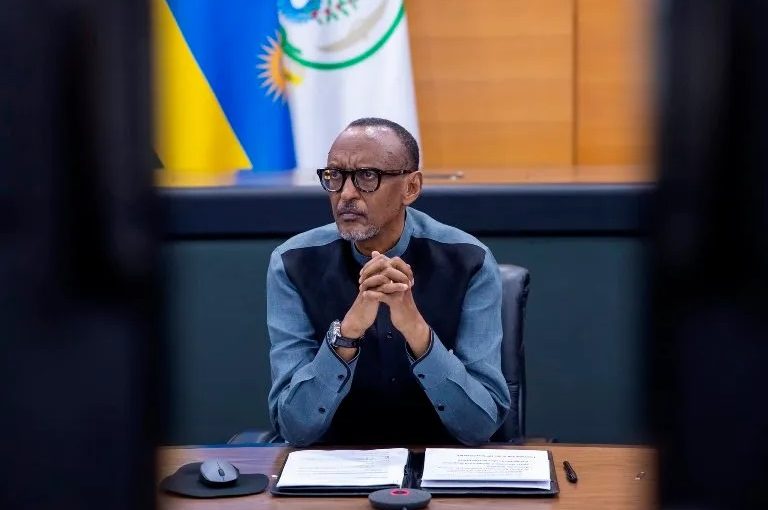
Picture: Taarifa
President Paul Kagame dug deep into how he has led Rwanda from a failed state to a progressive one and weather he plans to stay longer or not. He also spoke about the relationship between Rwanda and Uganda. More, he talked about Africa’s new paradigm shift in regard to managing their own affairs void of the west’s hand.
Read more below.
Ali Aldafiri: When I was 19 years old Mr. President, we only knew Rwanda through the massacres that took place in this country through the news bulletin in the year 1994. Today Rwanda has transformed and changed, there’s a very big renaissance. What have you done, what is the password that you use to achieve this great transformation and success in your country?
President Kagame: Well, truly we have come from far, almost to non-existence to where we are now. The country is stable, is peaceful, we’re making progress, there’s growth, there’s development, people are coming back together, the country was so divided in the past, now there is unity in the country.
So, i think progress is on, there is still a lot of work to do, we have a long journey to travel to be where we want to be, so there is not a secret i think, it’s just people understanding the need to address the challenges we face and we try to do that the best way we can and involve everybody.
And, yes there are leaders, people, ordinary citizens who have to be involved and benefit from different policies, social economic policies that lead to that transformation, that’s what we as leaders have had to do, is make sure that we put in place these socio-economic policies, working together with the citizens and also making sure that everyone moves in good direction.
Ali Aldafiri: There were 800 000 deaths from April to July 1994, it’s not easy at all to turn this page. What were the initiatives that you have adopted over the past 27 years to overcome this issue amongst Rwandese?
President Kagame: I talked about policies, i talked about citizens being involved, i talked about leaders really being focused and also doing things in a way that they earn the trust of the people of this country, i think that’s where we put a lot of energy and we have not been mistaken, the results have been speaking for themselves.
Ali Aldafiri: What are the guarantees that Rwanda will not return to these very difficult days?
President Kagame: Well, because we are not working towards that! We are working towards something else. We do it in a sustainable manner, and it is sustainable because of, one, the people themselves that get involved and understand the need for doing what they are doing, two, it brings stability and we continue to build on that.
So we concentrated on building a foundation, we built institutions; also we tried to create a mindset change, generally for our people.
In the past, we had Rwandans who would sit back and almost sometimes do nothing because there are rich people who help the poor and they will come to help, and so now we are saying, okay let’s not wait for people who want to do well, and do good and bring us, you know, what they can give us to live. Let’s do that ourselves, let’s be able to, of course when you’re working with others or those who want to do good and bring whatever they want to bring, then they should find us already making good progress.
Ali Aldafiri: Mr. President, when a person talks about the future projects, this is important and logical. It is logical that change needs many years to be achieved but when a president talks about the future and has been in power since the year 2000, does this indicate that you intend to stay for longer as president of Rwanda?
President Kagame: Well, I don’t have to be in power to see the benefits of what I’m talking about. Some of the good things have already happened anyway and I am seeing them. There are many other things we expect to happen that are good for us, that are good for the country, maybe some of those will come when I’m not there, but certainly Rwandans will see that or will be contributing to that happening, and so on and so forth.
So, that’s why it takes me back to say, for me that’s not really a big issue, whether what I’m doing now, what i will do or what i will see tomorrow, is just a part of a bigger thing than me, and also it’s part of a process. But as I mentioned earlier, it also depends on what the people of this country want.
Ali Aldafiri: Is the political peaceful opposition allowed to work here in Rwanda and to face the president, to disagree with the president and to seek power by competing with him through the ballot boxes?
President Kagame: The opposition exists. The opposition means people having different views about governance, about whatever is happening in the country. Even if they were ten and were pursuing different lines of thinking, political thinking, they converge on one thing, all of them. That’s my expectation. They converge on the well-being of the people, and also the stability of the country. I think on that one they don’t disagree.
I don’t think there would be anyone called ‘opposition’, and that is understood as being opposed to the established arrangement, thinking that, ‘no, I want to remove these ones and bring instability to the country’. So in other words those are things they converge on.
So, in our case, we have also had that anyway in our history, we have had instability and we have had instability at a time in fact these different parties called opposition parties had emerged, and all of them participated in that instability, all the parties.
This genocide you hear about that happened 27 years ago, it doesn’t matter which side they were coming from, so there was no opposition, so-called which you mentioned, that stood up and said ‘no, we can’t go down this road’. They actually participated in that. Why would you think that happened?
So I’m trying to bring to your attention the fact that each country has its own context and circumstances in which it operates. Therefore, you don’t want to establish just a template and say every country must follow this way of doing things. I don’t think even these champions of democracy actually do that.
Ali Aldafiri: But some people say that President Paul Kagame has a tendency towards the African continent as an African flair that rejects the western standards in matters like democracy and human rights.
Kagame always says that ‘we have African values, we have culture, we are the ones who decide how and in what way we must live’ but the western model Mr. President dominates the world. So how do you face this western model and what other African values do you want to dominate the African reality?
President Kagame: When we are talking about Africa and then we’re talking about the history of Africa and the present time governance and leaders, why should we forget the history as well? People come forth and they want to pretend like the problems are just starting today or that they don’t actually involve these same people we are being told to emulate, to admire, to… No, they are part of my problem.
We have to take the blame for our own wrongdoing, Africa. There’s no question about it, we can’t escape it, we shouldn’t escape. But should we also keep quiet about the wrongs done by others to Africa in the past? By the way, even in the present.
So how then do I even as a person accept that those dictates prevail, that i should keep quiet about certain wrongs that have been done to me, against me, and just follow the dictates of others to me even when they make similar or worse mistakes in their own situation?
Ali Aldafiri: There were some problems that happened with Uganda in March 2019 in the Great Lakes region. Have you overcome this matter, especially since Museveni is an ally of President Paul Kagame as you have worked together for long periods of time?
Have you overcome this matter and how has this dispute affected the region here in East Africa?
President Kagame: Not yet. I think there are still a number of issues that will have to be resolved. Well, it takes two to tango, I guess both countries will continue searching for a solution to the problems that still exist, we understand the root cause, therefore we should be able to find the way forward and better understand than we have had in the recent past.
Ali Aldafiri: Mr. President, what is the nature of the dispute between you and Uganda, in particular the problems between you?
President Kagame: We have had opportunities to discuss some of these problems openly, for example I just state two key facts: a big part of the border is closed and some people will say just open the border and do trade and…which everyone wants and in the whole region. Now, for us the problem is what actually led to the closure of the border that needs to be answered before the border as such is open.
We have had a situation where Rwandans suffer or are not allowed to go to Uganda to do their business normally, the establishment in Uganda simply hands down Rwandans wherever they find them, they have all kinds of pretexts they put forth talking about insecurity that is caused by Rwandans, and we have raised issues around that which really amount to persecution rather than anything originating from Rwandans that go to Uganda.
But when Ugandans come to Rwanda, they have not experienced the same hardships as Rwandans do when they go to Uganda, and the question here is if you are talking about border closure, a border is for people, the people who cross back and forth.
Ali Aldafiri: Why is Museveni, your former ally, doing this? Some people say that there is a fear of Paul Kagame’s leadership and hegemony in the region. Is this more of competition than disputes over borders?
President Kagame: I don’t know, I don’t want to argue for somebody else. If you ask me what concerns me, I’ll tell you, but if you ask…
Ali Aldafiri: Mr. President, do you call President Museveni or do you communicate with each other?
President Kagame: We used to. We used to talk to one another but of late it has more or less stopped.
Ali Aldafiri: Is it a long time ago?
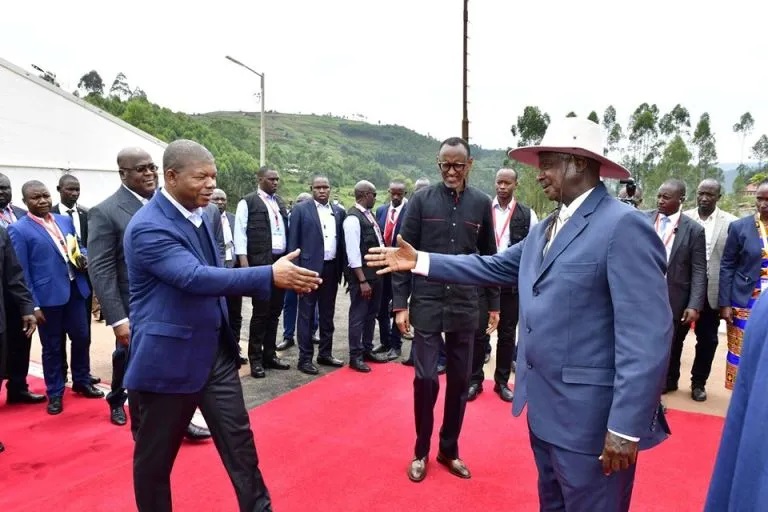
President Kagame: It is for some time. And until these issues are resolved then, talking isn’t just talking for the sake of it, we talk because we relate and have to do things together, but if not then what is talking about?
Ali Aldafiri: Mr. President, what is the Rwandan army doing in Mozambique, in Central Africa, how long will the army stay outside the country?
President Kagame: Well, the Mozambican problem, we were, first of all as Africans and as even friends of Mozambique, when Mozambique had a problem and wanted us to work with them to address whatever problem there was, they went to other countries it’s not just Rwanda, and for us we responded the way we could and we have worked with the Mozambicans to address the problems that, and the way we had to, I think much success has been achieved.
So, again it’s between us and Mozambicans and whoever else they asked to help to decide the way forward, and the way forward would be dictated by the conditions on the ground and the work that has to be done, eh… in view of that. So I really don’t see that as a problem.
Ali Aldafiri: Till when will the Rwandan army stay in Mozambique? Shouldn’t this mission be left to the Mozambicans? So is your army going to stay longer in Mozambique?
President Kagame: This is what I’m saying, it will be solved between Rwanda and Mozambique. We are capable of discussing and seeing what issues on the ground to address and how and what time it takes.
But some of these things you don’t just give a date and say ‘no I’m going’, even when we were going, we were not saying we are coming to resolve this problem in one week, in one month, and we are gone. It doesn’t happen that way. So what can we do about?
A lot has to depend on the circumstances as well. It depends on what is on the ground really, and also the feelings of the Mozambicans who asked for help in the region, the southern African region, who asked us, and there is a lot of discussion that goes on in knowing what to do next. So that’s not a big problem.
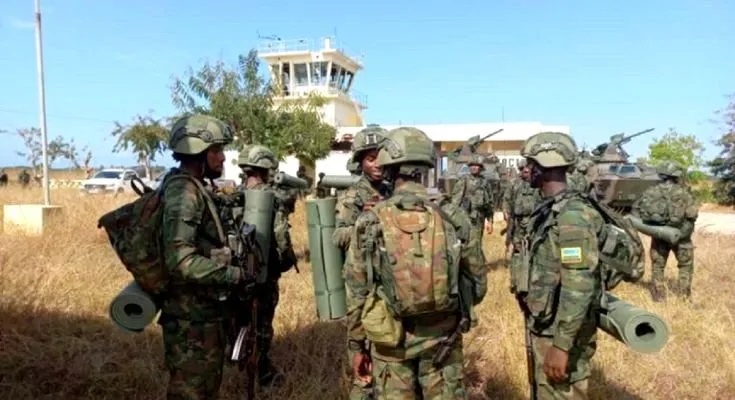
Ali Aldafiri: You chaired the African Union during that before last session; you offered several Africans integration projects such as Free Trade, the Single African Air Transport Market and African Free Trade.
In your opinion what is the volume of problems facing the issue of African cooperation and building a strong economic block that depends and benefits from the wealth of the continent in achieving progress amongst the countries?
President Kagame: Africa has to come together and that’s why we have an African Union, it was to try and bring Africa together, to work together for cooperation, for, you know, to be able to address the many challenges that face Africa.
So when I became the chair of the African Union in 2018 but even before or even after that, we always emphasize on Africa working together. Whether it is for security, for trade and investments, or, actually facing together these injustices that we talked about earlier.
Ali Aldafiri: What is the obstacle? Some people say the large part of obstacles of Africa is coming from outside Africa.
President Kagame: Well, that’s what we have to agree first of all. Does it come from outside? Is it something we can… and therefore, whatever it is, wherever it comes from, even if it comes from within by the way, we can still work together to address it.
It’s not that we should come together to address what comes from outside. No, it’s coming together to address what affects us commonly, even if it was to originate from another country within Africa, you know, affects us or affects a number of us, it needs to be addressed.
Ali Aldafiri: What is the worst picture in President Paul Kagame’s memory in the years of asylum that is still stuck in your mind?
President Kagame: Well, I say it’s an image of poverty, it’s an image of deprivation, it’s an image of instability because even when I was a kid, four years old, when we, my family was fleeing the country and going to the neighbouring country Uganda, I still, even as a young kid I remember the chaos that I could see, the way we are being rushed here and there, so as I kept growing, these memories also kept in my mind up to now.
Ali Aldafiri: Colonialism for decades and centuries has created a negative image or stereotype for the Africans. Today, there are various successes made by the Africans.
Does the image of the Africans today concern you at the time where the Africans are presenting successful strong and unique models?
President Kagame: For me, I see myself as a person, as a human being, as a Rwandan, as an African, and therefore these struggles are things we have to confront and deal with directly without any apologies, without any fear, without even a sense of feeling we are doing it as a favor to anyone but rather to ourselves, to humanity, to many others who have not been able to maybe have a chance or have a thought about doing what we have done.
So it’s quite a broad thing, I see indeed my way of evolving into this as part of the history of many Africans, as many, given that history whether it is in colonial times or bad governance of today or injustices, double standards that exist in the world that affect us today.
Africa or Rwanda, you will find we are a country you want to do, you know the citizens want to do the best for themselves.
You happen to be a leader of these people, but you find there are these injustices and all kinds of problems that affect you, that are not of your own making, that come from somewhere else, that are linked with the history of how people view you, how they want to see you, and, so you are caught up right there in the middle and you have to do something about it.
There is not much you can do just as an individual; you have to do much with other people and it all comes and builds on the political thinking people have.
Ali Aldafiri: Mr President Paul Kagame of Rwanda, thank you very much.


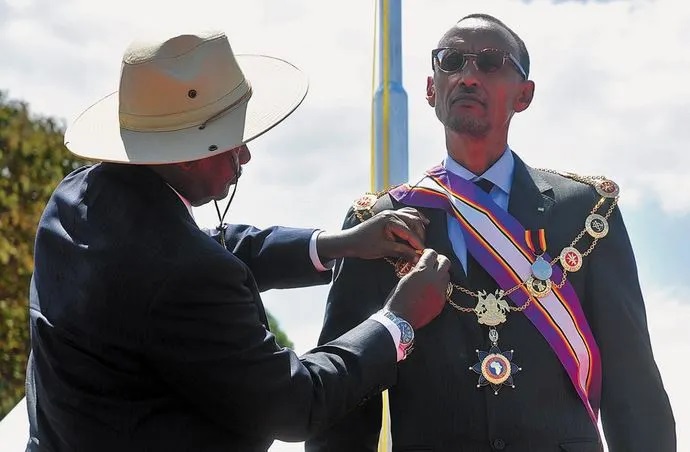
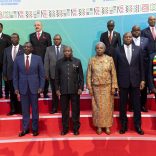
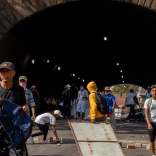

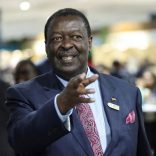

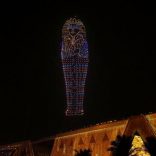




Leave a Reply
Be the First to Comment!
You must be logged in to post a comment.
You must be logged in to post a comment.